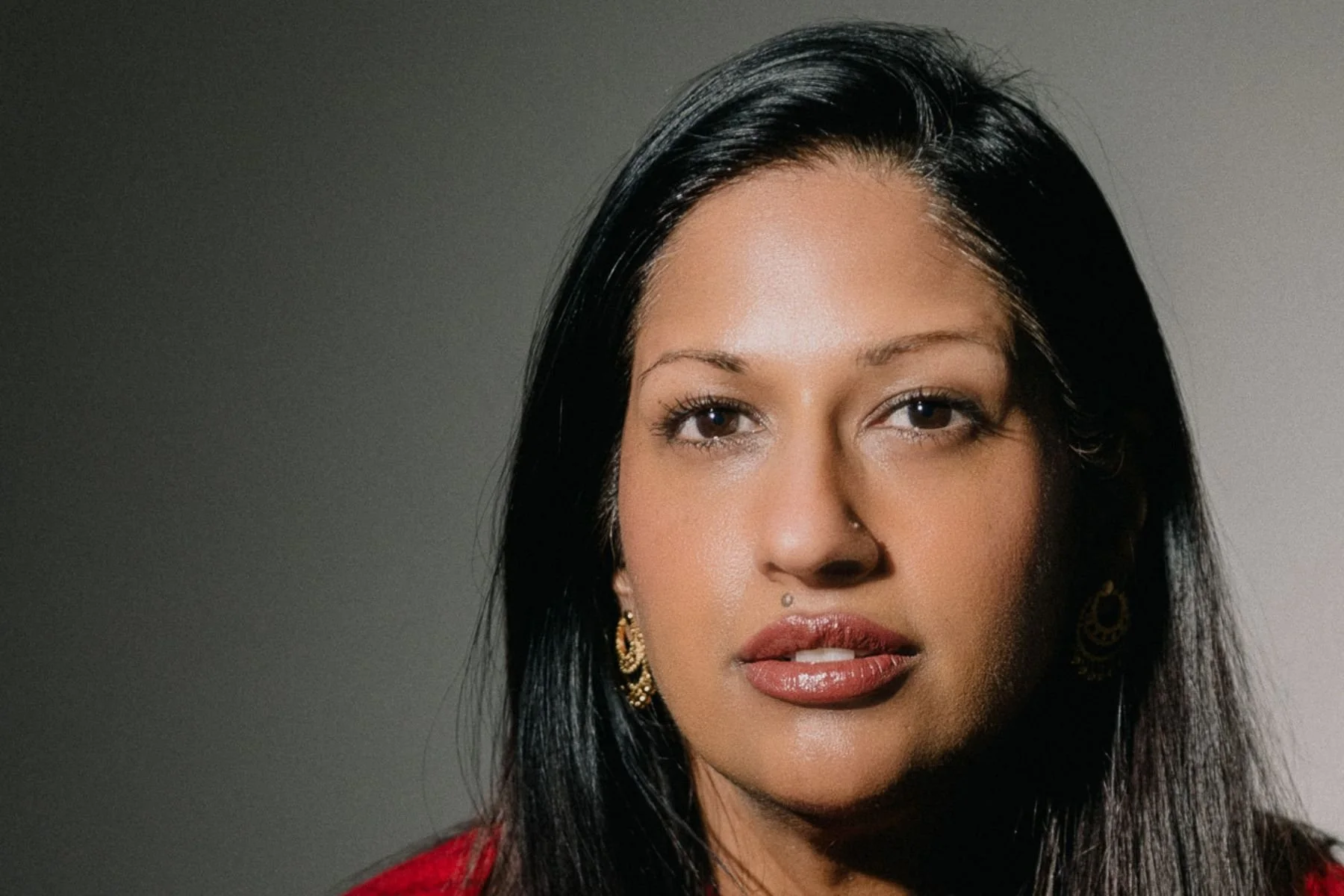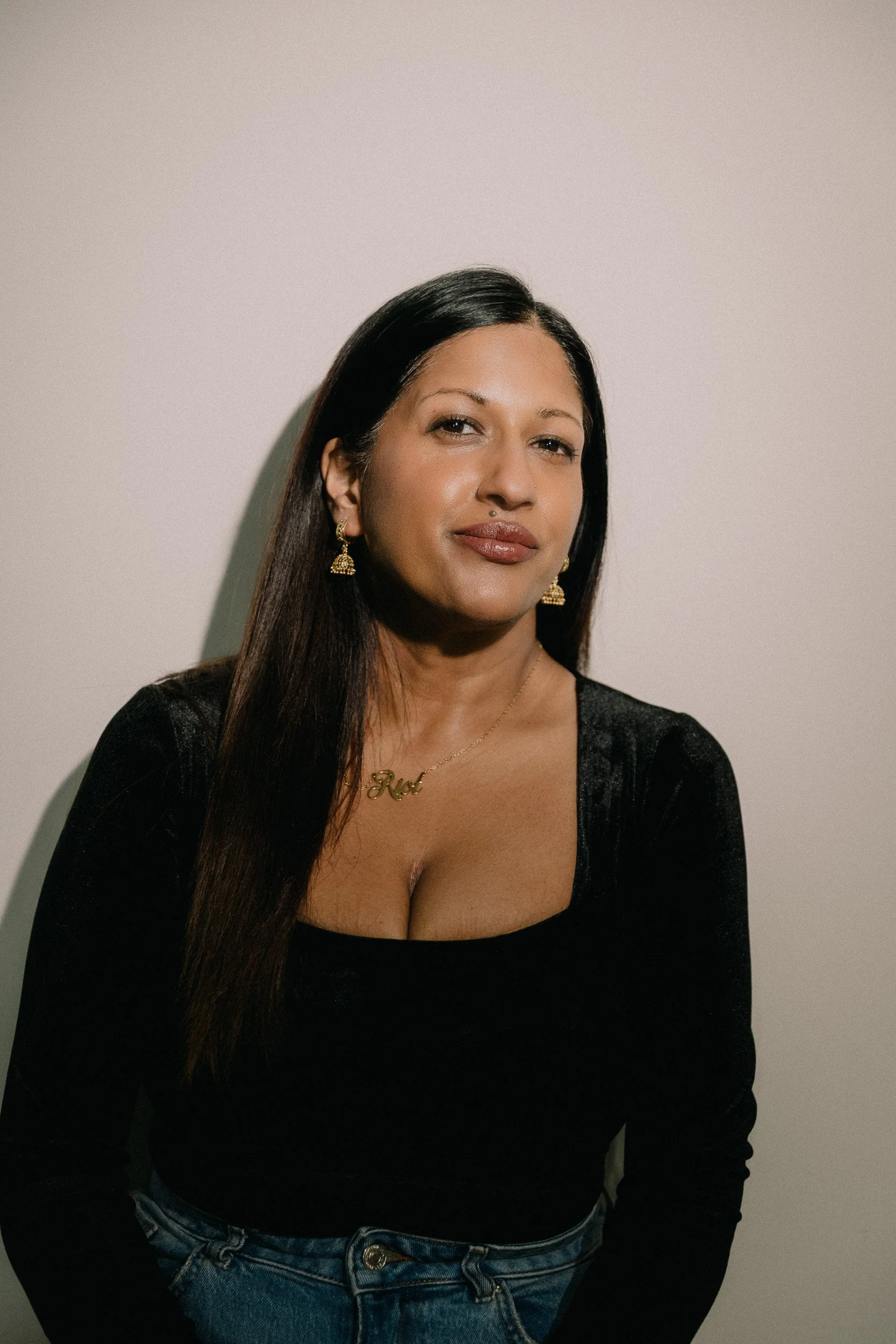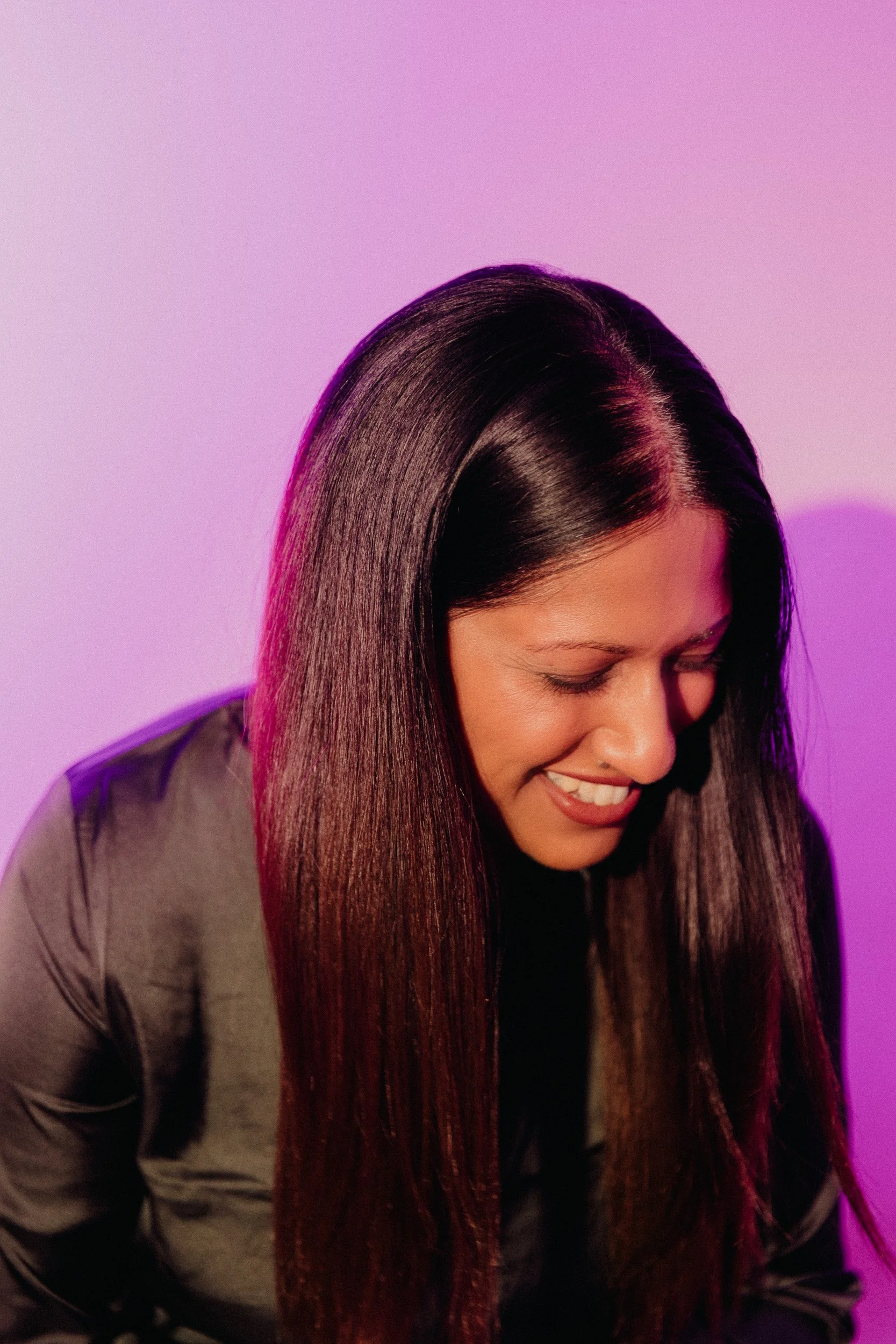Holding space: You’re not alone
When Sonal talks about the work she does, she speaks in a way that makes you lean in a little, the way you do when someone is telling you something real. She doesn’t dress anything up or use dramatic phrases. She just describes the small things: how people arrive, how they sit, how their confidence shifts over time. And it’s these small details that reveal what her counselling actually means.
A lot of what she offers comes from lived experience and her own journey with her son, Zack. She supported him through years of waiting lists, uncertainty and the slow unfolding of his identity. “For me, supporting him felt normal,” she says. “I didn’t realise how rare that was until I started hearing other people’s stories.” That understanding, that blend of clarity and care, shapes the way she now sits with others.
A space built from lived experience
At the moment, Sonal runs counselling sessions once a week at Stanley Arts. The rooms she uses aren’t really designed for this kind of work: wooden chairs, cold air, spaces that feel temporary. People still turn up, though. They keep coming back. They come because there are almost no accessible LGBTQ+ counselling options locally, especially for trans youth. This counselling is part of Queer Croydon’s wider programme of community support, set up in direct response to the difficulties many people face when trying to access therapy through NHS talking services.
Alongside her one-to-one counselling, Sonal also supports the Trans Youth Support & Mentoring sessions, a community space where young people meet as a group. This is where she sees the more visible shifts over time. She talks about young people who once sat quietly, barely speaking, slowly beginning to greet others when they walk in. It’s a small change, but a meaningful one. She never frames it as her achievement, just something she feels grateful to witness. “A little light,” she says at one point. It’s simple, but you understand exactly what she means.
Why local support matters more than ever
The current climate for queer and trans people is tough. Services have been cut, rhetoric has become hostile and young people are being left in limbo, often for years. “Zack has been on the NHS waiting list for four and a half years,” she says. “We could afford private help. Most people can’t.” That gap between need and access is where her work sits.
More than counselling: building community from the inside
Her work isn’t limited to counselling. She’s also the Heritage Lead for Queer Croydon, working on South Asian creative workshops; she supports trans youth in monthly clubs; she sits on a Croydon University Hospital’s maternity advisory board; she’s exploring collaborations with local organisations. All these roles weave together in a way that shows she isn’t doing this because it looks good on paper. She’s doing it because it makes sense to her, because she knows what it feels like to be unseen and she doesn’t want that for anyone else.
“I just want people to know they’re not alone,” she says. “That someone is there. That they’re okay.”
The need is growing. The space isn’t.
But the need is growing faster than the support behind it.
Right now, she has eight clients and just four hours of weekly space. She squeezes sessions into video calls, evenings and any quiet corner she can find. What she really needs, and most importantly what the community needs, is something much more stable: a warm, private, more permanent space where people can talk without the sound of footsteps outside the door. Ideally, two full days each week. Somewhere that feels like a second home, not a spare room.
“Counselling shouldn’t happen in a cold room where you can hear people walking past,” she says. “A warm space changes how people open up.”
Why her work matters
The changes she witnesses are small but meaningful. A shift in posture. A laugh that wasn’t there before. People finding each other slowly, sometimes quietly. “You see a little light turn on in someone’s eyes,” she says. “That wasn’t there when they first came.”
Healing doesn’t need to be loud. It needs to be possible.
How you can help
If you’d like to support LGBTQ+ counselling work by Queer Croydon:
Donate toward securing a stable counselling space - via GoFundMe
Volunteer skills or time - get in touch with Queer Croydon
Share this article with someone who might need it
Donations also support our Trans Relief Fund, which helps meet urgent needs in the community, from therapy costs to travel and safe accommodation. Every contribution helps make this support more stable, accessible and ongoing.
This isn’t about expanding a project for the sake of it.
It’s about making sure people have somewhere human to turn to.



